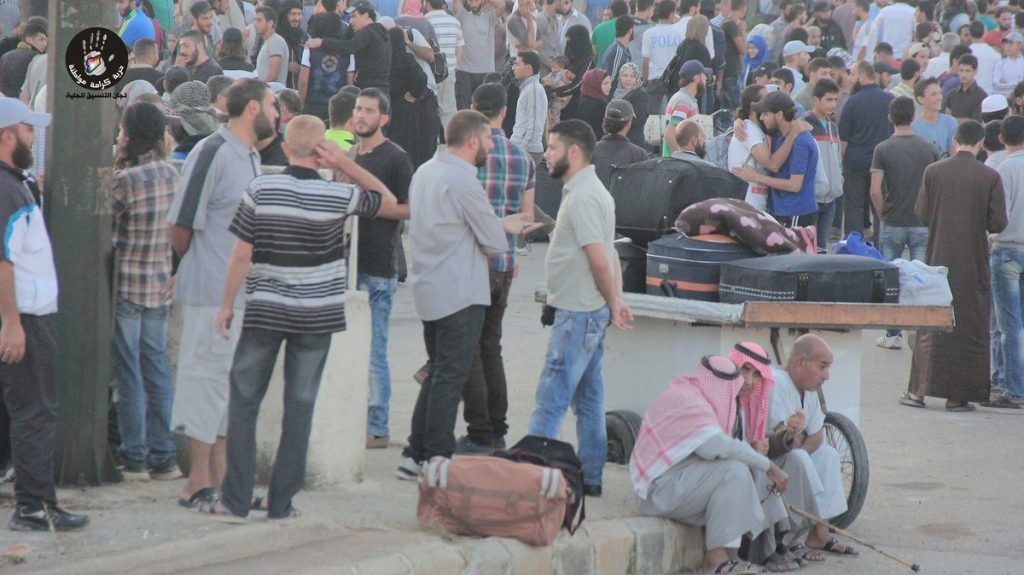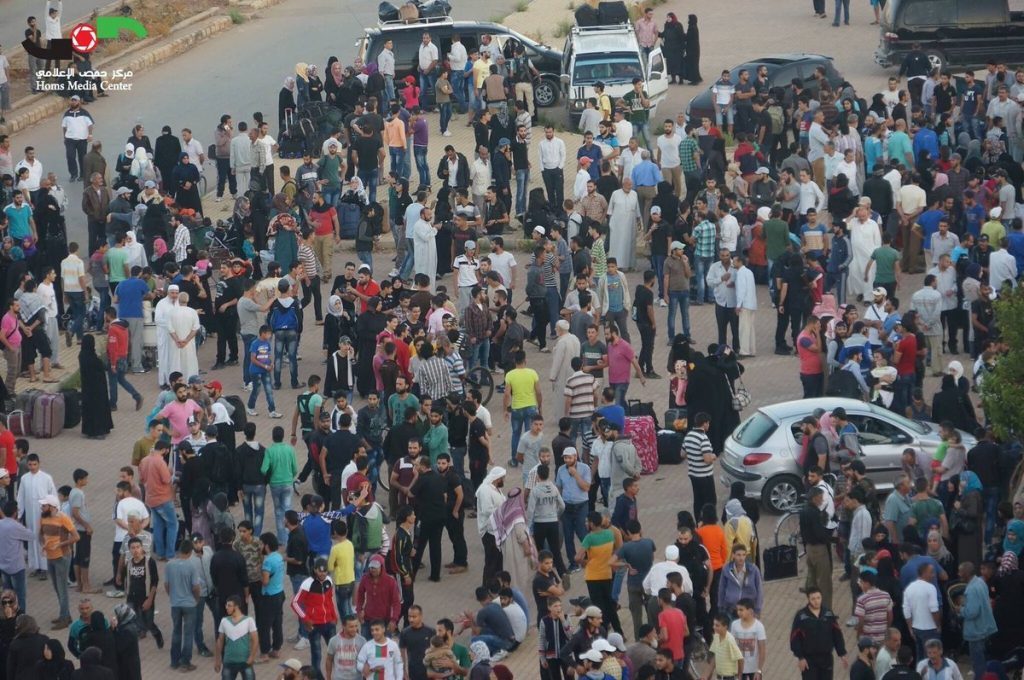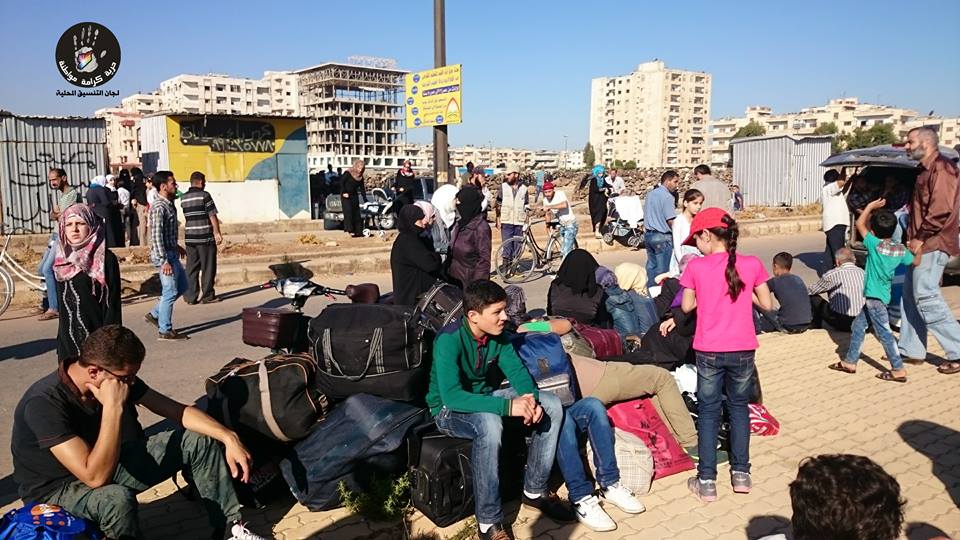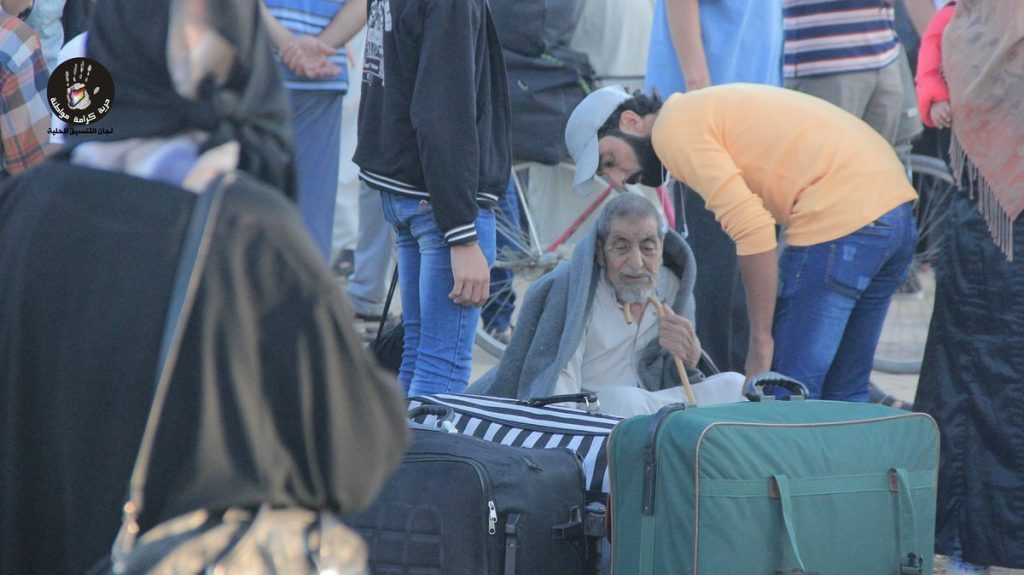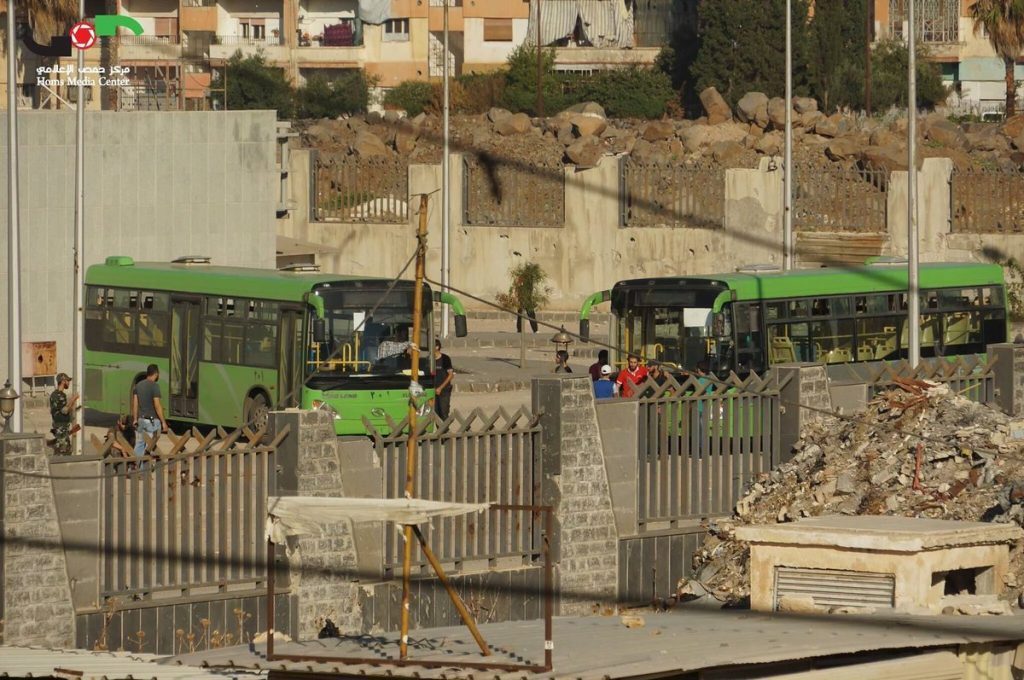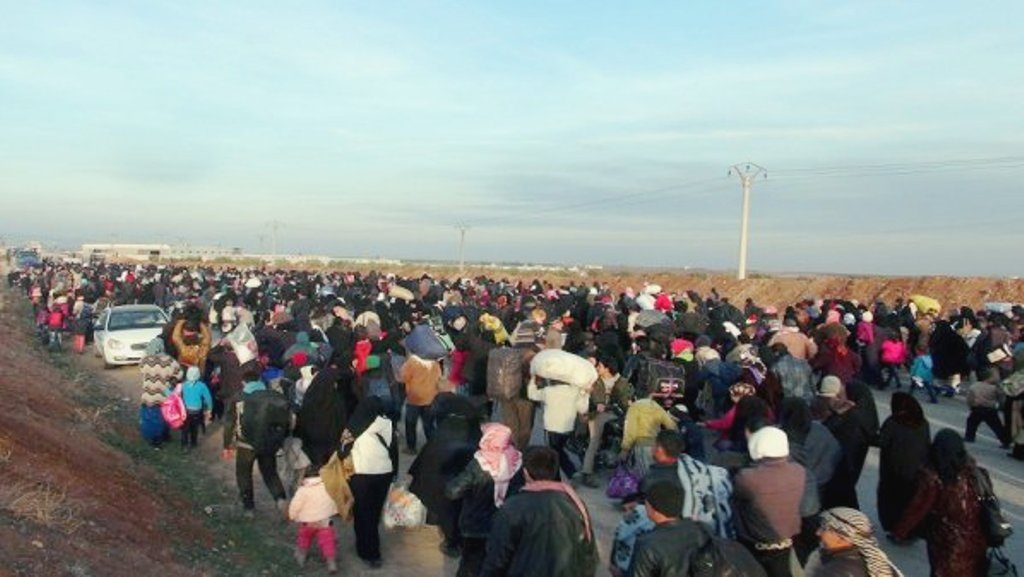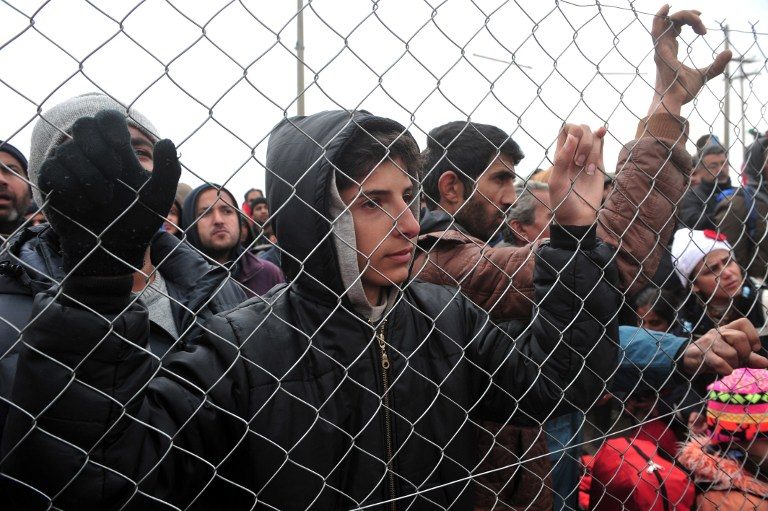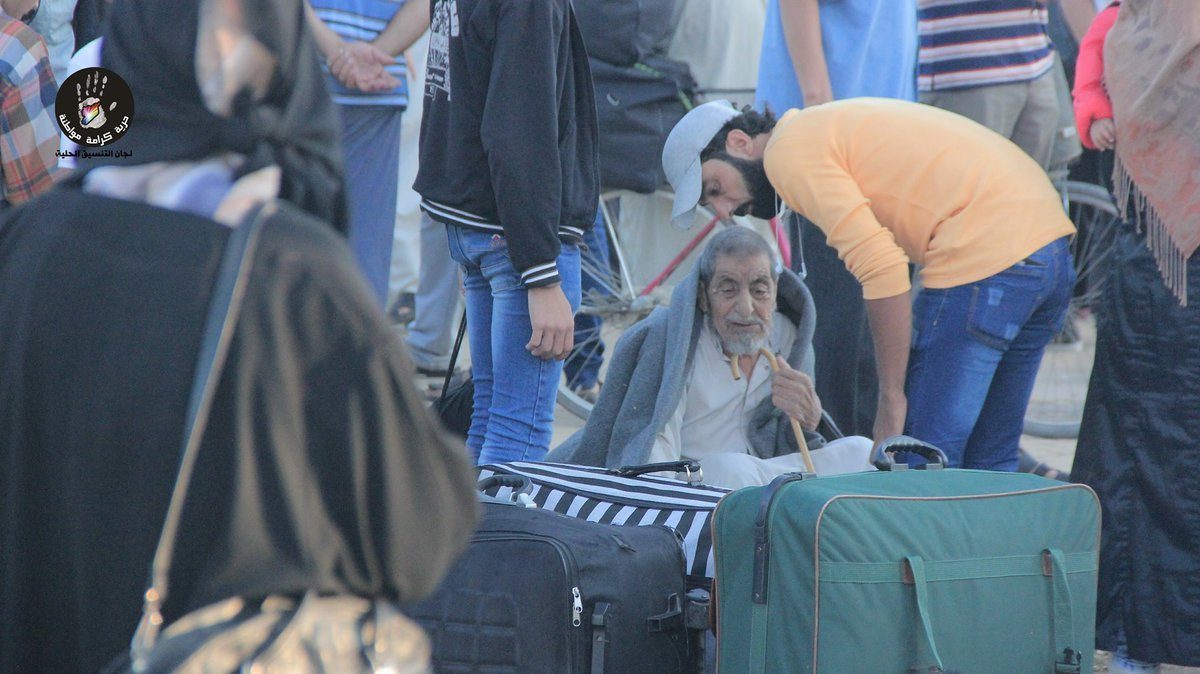
A planned evacuation of several hundred Syrian rebels, under a previously signed deal, from the last opposition foothold in Homs city was delayed until Tuesday, the Homs governor said, vowing to press ahead despite opposition warnings it will sink a truce.
The district of al-Waer in Homs, home to 60,000 people, is besieged by the government since 2014, which has been seeking to conclude local agreements with rebels to win back full control of strategic areas in western Syria.
Under the agreement, signed late in August by the local reconciliation committee and government officials, President Bashar al-Assad’s forces are to end the siege on the area and stop bombardments in return for the withdrawal of rebel groups.
Homs Governor Talal Barazi said the delay in evacuating the fighters from the al-Waer district was due to “logistical obstacles”, but he was confident it would go ahead successfully.
“This is the fifth time that fighters and their families are evacuated from Homs,” Barazi told journalists in the city. “All previous evacuations were successful, and this one will be too.”
He said on Sunday that between 250 to 300 fighters were due to leave Waer on Monday. Fighters from Waer have previously been given safe passage to the insurgent-dominated province of Idlib in northwestern Syria.
Explaining the obstacles that led to the delay, Barazi said earth berms and concrete barricades need to be removed from the route to ensure the rebels reach their final destination. He said this could be Idlib province or the border with Turkey.
The previously signed truce document stated that the deal is to be implemented in five stages, whereby rebels would be evacuated gradually and detainees held in government prisons would be released.
In the first stage in the implementation of the agreement, 300 rebels and their families would be evacuated to opposition-held areas in northern Syria, mainly to the province of Idlib. In return, the government would open the roads to al-Waer and allow food in.
The second stage would see the withdrawal of 500 rebel members along with their families from the neighbourhood and the release of 200 al-Waer residents detained in government-run prisons.
In the third stage, the government would declare the fate of prisoners based on a list submitted by the reconciliation committee, and 300 more rebel fighters will be evacuated to northern Syria with their families.
The opposition fighters, in the fourth stage, would withdraw from government institutions, and all the remaining rebels would be evacuated with their families.
Finally, the government would consolidate full control over the neighbourhood.
Rebel groups warn the regime
Rebel groups, however, have said the plan is part of a government strategy of forcibly displacing people from areas after years of siege and bombardment. In a statement on Sunday, they said the government would have “clearly ended its commitment to any proposed truce” if anyone was evacuated from Waer.
“If any person is evacuated from Homs’ al-Waer or any other besieged neighborhoods in Syria, Assad regime will have clearly ended its commitment to any proposed truce, and all the revolutionary groups will continue in their legitimate right.”
The opposition’s statement accused the regime of practising “starve or surrender” tactics and attempting to “ethnically cleanse” areas of their Sunni populations. Syrian
“Two hundred fighters and their families, most of whom are injured or are ill, will leave al-Waer for Idlib on Monday,” head of the Homs Media Centre, Mohammad al-Sibai, told The New Arab.
“The total number of people evacuated will be around 800. The regime is also expected to release some prisoners or announce their fates,” he said, adding that there are around 7,000 detainees in regime prisons from Homs alone.
“Humanitarian aid has yet to come into the district except for a limited amount of vegetables. Civilians are extremely cautious about travelling outside because of fears they will be arrested.” Syrian
A truce brokered by the United States and Russia came into effect in Syria on Sept. 12, though both the combatants have accused each other of numerous violations. Syrian
A nation-wide exudus
In several Syrian areas, lengthy government sieges have prompted rebels to agree to evacuation deals, leading activists to accuse Damascus of using “starve or surrender” tactics.
Last week, buses evacuated residents and rebel fighters from the Damascus suburb of Daraya under a deal that was agreed on after a four-year siege by government forces.
Another deal is being discussed for the besieged Muadamiya suburb of Damascus, but Al Jazeera’s correspondent in the area said a final agreement between the government and rebels had yet to be reached.
Final conditions dictated by Assad’s forces require that rebels hand over all their weapons before being transferred to Idlib.
Some opposition groups have criticised these preconditions, calling them a major setback as Sunnis would be forced from their homes, further fracturing the country along sectarian lines.
They are seen as part of a pattern in which the government pushes out Sunni communities that have been living there for decades. In 2015, there was a similar deal in Zabadani on the outskirts of the capital.

